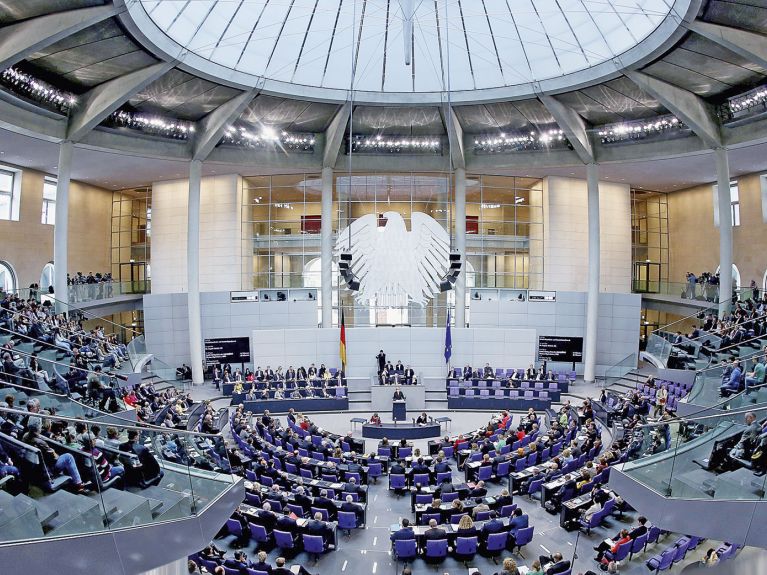Who governs Germany and what is important in politics
There are many important issues and projects on the agenda for Germany’s Federal government.

Since the Bundestag elections of 2013 Germany has been ruled by a “Grand Coalition” of the major parties, the CDU/CSU and the SPD. Coalition governments are a feature of the German political system. Up to now it has only once been possible for just one party to form a government alone, and that was back in the early 1960s. Since 2005 Dr. Angela Merkel, leader of the CDU party, has headed the German government as Federal Chancellor; she is now in her fourth term. Her role is to shape the principles of German politics. Angela Merkel is the first woman in the history of the Federal Republic of Germany to hold this office. She grew up in East Germany and holds a PhD in Physics.
The cabinet consists of 14 ministers as well as the Head of the Federal Chancellery. The SPD provides certain key individuals, including the Deputy Chancellor in the person of Olaf Scholz and the Foreign Minister in the person of Heiko Maas. Coalition governments use such agreements to reach an understanding on the political objectives of the legislative period before they enter into government together.
German politicians face huge challenges. Alongside social and environmental policy, one of the most important tasks is to manage the huge influx of refugees. In 2015 well over 800,000 people came to Germany seeking asylum. They came mainly from crisis and conflict regions, primarily from Syria. Germany recognises its humanitarian responsibilities towards people who are forced to flee their homelands. The German Federal Government is working at many levels to achieve an international – and specifically a pan-European – solution as part of its immigration and refugee policies. At the same time, German politicians are working to rectify the situations that cause such flows of migrants.
